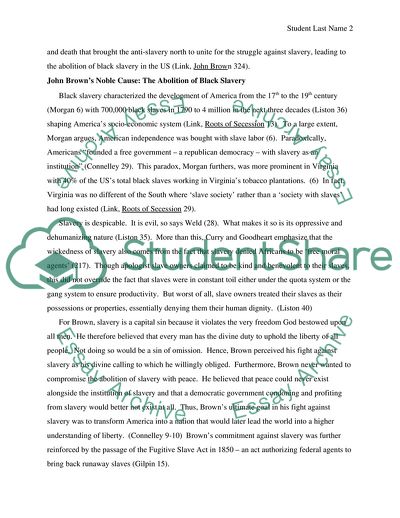Cite this document
(John Brown: A Hero, Not a Terrorist Literature review Example | Topics and Well Written Essays - 2000 words, n.d.)
John Brown: A Hero, Not a Terrorist Literature review Example | Topics and Well Written Essays - 2000 words. https://studentshare.org/history/1815168-was-john-brown-a-hero-or-a-terrorist
John Brown: A Hero, Not a Terrorist Literature review Example | Topics and Well Written Essays - 2000 words. https://studentshare.org/history/1815168-was-john-brown-a-hero-or-a-terrorist
(John Brown: A Hero, Not a Terrorist Literature Review Example | Topics and Well Written Essays - 2000 Words)
John Brown: A Hero, Not a Terrorist Literature Review Example | Topics and Well Written Essays - 2000 Words. https://studentshare.org/history/1815168-was-john-brown-a-hero-or-a-terrorist.
John Brown: A Hero, Not a Terrorist Literature Review Example | Topics and Well Written Essays - 2000 Words. https://studentshare.org/history/1815168-was-john-brown-a-hero-or-a-terrorist.
“John Brown: A Hero, Not a Terrorist Literature Review Example | Topics and Well Written Essays - 2000 Words”. https://studentshare.org/history/1815168-was-john-brown-a-hero-or-a-terrorist.


